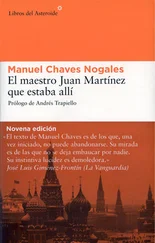V
Those who went to the burial at the Aywaille cemetery saw him accepting responsibilities not his to assume. Chopin attended those who wished to say farewell to Léopold and even allowed some to go up to see his widow, who was quietly breaking down in an eddy of bedclothes (tears sprang from her open eyes as if from a mechanical doll) and had brought her daughter’s cradle to the side of the bed so she would not stop rocking her for an instant (in the silent icy room, her arm was the only movement). For those present, Chopin was still an employee of the company transformed, by virtue of solidarity or sympathy, into a friend of the family; it was later they learned of his secret life, of the affair, of his role in the accident. By the time the details came to light the lovers had separated, their lives had gone in different directions, one without the other: he to Namur, as an assistant in a whole-food shop and restaurant, and she embedded in her Ferrières house, where she still wakes up in the middle of the night to see her husband standing at the foot of the bed or starting down the stairs as if it’s time to get up and put the coffee on. After a few months, when Chopin visited her with the intention of recovering something, of reliving the confusing emotions that had brought him so close to happiness, she received him out of courtesy and spoke of the father, not of the lover, for the length of time it took to empty a teapot. On her lap, or on the blanket as thick as a poncho that covered her from the waist almost to her parallel feet, was a notebook with iridescent covers and a pencil sharpened with a utility blade and tied to the chair with a leather cord. Without lifting the book, Selma told him that she’d started to write down anecdotes about Léopold — his cheese sandwich, what he said before going out hunting — because she, who had grown up without a father, wished her mother had thought of doing this. It was obvious, from the crossed-out lines and an arrow that ran right over the seam of the book from one page to the other, that her ideas weren’t clear, that the memory of her dead husband was already escaping her; but to Chopin, who was beginning to glimpse the undeserved sentence of solitude, this interested him less than the detail of the hanging pencil, a leather pendulum. When he asked her about it, Selma explained that the cord allowed her to find the pencil easily, without wasting time or having to call anybody, when the spasms of fatigue paralyzed the muscles in her hand and forced her to drop it. The hand is a beautiful apparatus, she said then, but still so far from perfect, and pencils are alive and reluctant and sometimes unkind creatures: one tends to drop them, by accident or out of clumsiness or exhaustion, and they can roll for whole kilometers.
I
Oliveira didn’t really care where the hotel was, because he didn’t intend to stay there any longer than necessary. When she was still sober, Agatha had suggested a family-run inn she thought she’d seen near the Auneuil exit, a few months earlier, one day when she’d been called to take care of an old mare with a broken leg. “Putting them down always depresses me,” she’d told Oliveira in her tired voice, “that’s why I don’t take those jobs anymore. The one that day was the last.” After a routine procedure with no complications, Agatha had thought a coffee with brandy might make the memory of the mare dying easier to bear — the fearful neighing, the tension in the spotted legs that gave way as the drug advanced toward the heart — and had gone into a place with a silhouette of a jockey with a riding whip and spurs on the sign. The inn was so pleasant, and it was run by such a nice old man, that Agatha had promised to return and spend a night in one of the four rooms upstairs.
“The old man fought in the war,” she told Oliveira. “But he deserted to be with his family, and no longer found it humiliating to confess. I congratulated him. I would have done the same.”
It soon became obvious they weren’t going to find the old deserter’s inn: Agatha couldn’t remember which route she’d taken that afternoon, and all the streets in the village looked like the same street with recently painted yellow signs and green wooden doors that looked black at night. It was a relief for Oliveira: he’d imagined the old man’s effusive greeting — he’d have a luxuriant mustache that would cover his lips — curious to know who Oliveira was and what his relationship was to the woman, whether they wanted a double bed, if they wanted to be woken early. He couldn’t help finding the prospect of that sort of affability, that forced familiarity, objectionable.
So they kept driving. They decided to track the arrows, obey the inert instructions, and go to an Etap, one of those automatic hotels for a hundred eighty francs a night where nobody mans the desk after ten, and clients register at a screen and use codes as long as telephone numbers to open the doors of the garage, the building, and the room itself.
“You don’t have to talk to anybody,” said Oliveira. “Don’t have to smile or give any explanations.”
“You’re ashamed to be seen with me?”
“Of course not, Agatha.”
“We could go in separately. I can say I’m your aunt, or something.”
“None of that. Don’t be ridiculous.”
Agatha smiled and closed her eyes.
“How romantic,” she teased. “Our first fight.”
Then the red wine made her start to doze off, and Oliveira found that, if he pressed down the clutch and took his foot off the accelerator, he could hear her breathing, the light snoring of a stuffed-up little girl. When they arrived, Oliveira stopped the van outside the main entrance — a banner of white light bathed the hood in its vulgar brightness, and a smeared handprint appeared on the windshield — took his credit card out of his wallet, and before getting out, heard Agatha stir, open her eyes, and say she was delighted they’d chosen such a well-lit place. For him there was something attractive in that giving in to childhood fears on the part of an older woman he’d met a few hours before and with whom he was now looking for a bed where they could make love.
He came back rubbing his hands together. In his lips he held a little piece of paper with serrated edges. Agatha took it from him gently, holding it between her thumb and index finger and waiting for him to open his mouth. The tremor of his door as it banged shut didn’t startle her, but shook the empty bottle under her bare feet. Oliveira wished at that moment that he’d had a drink as well, because the wine would have warmed him up.
“It’s never been so cold,” he said.
“I was dreaming of my daughter,” she said. “I dreamed she was alive, here in the back, and we were talking about horses.”
“She couldn’t have been back there. It’s full of cases and bags.”
“And my instruments.”
“Yes. The heaviest of all.”
“Don’t exaggerate. But a person could easily fit. The proof is that in the dream all that was there and Alma as well. She was asking me what the syringe was for, the scalpel. In the dream she was wearing a Charleston boa.”
“What does the little paper say?”
“Three nine at the beginning,” said Agatha, “nine three at the end. A few more numbers in between. Do you want me to go?”
Before he could reply, she was standing, in bare feet and furrowing her brow, in front of the sliding garage door. With two long strides that didn’t betray the alcohol levels in her bloodstream she was at the keypad. She reproduced the number — Oliveira could hear the beep each time she pressed a button — and smiled when the white light illuminated the entrance and the door slid along its rail set into the pavement.
Читать дальше










